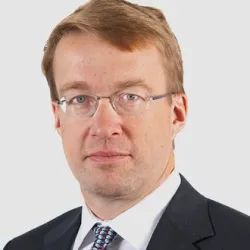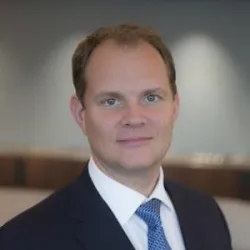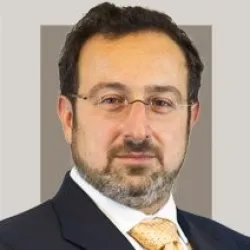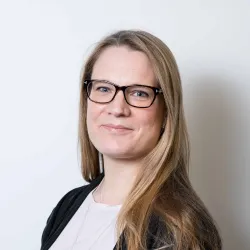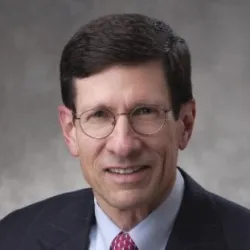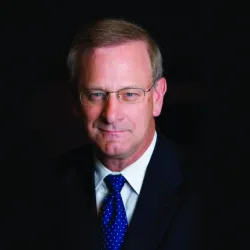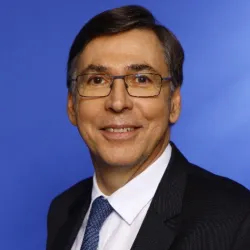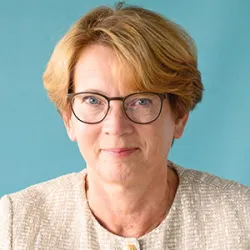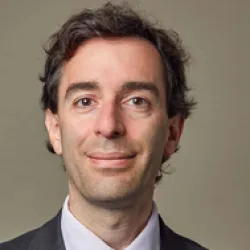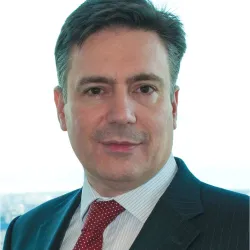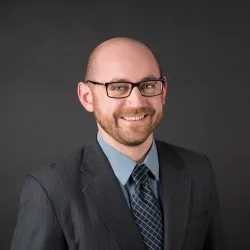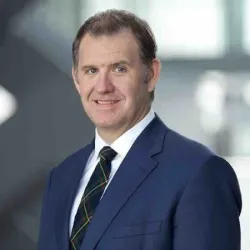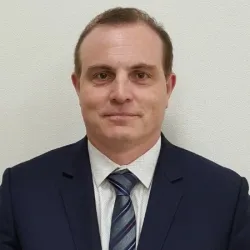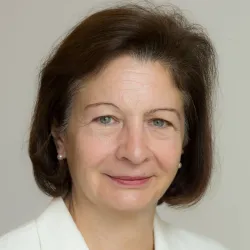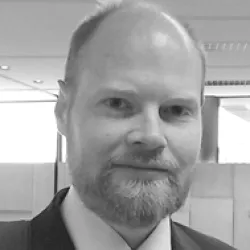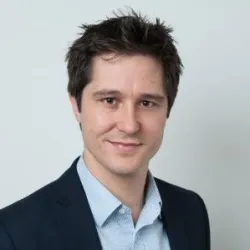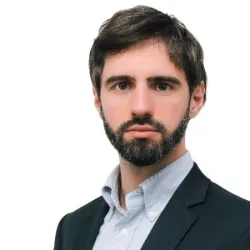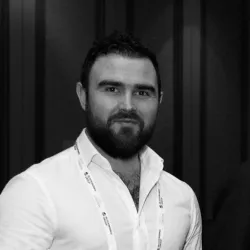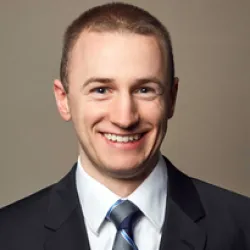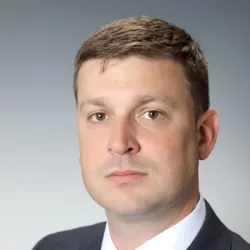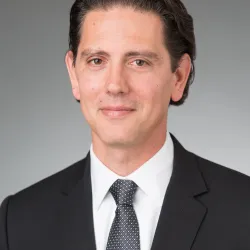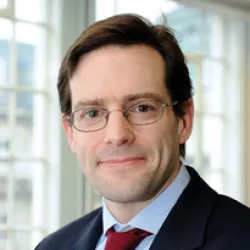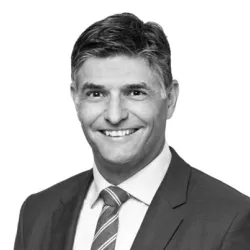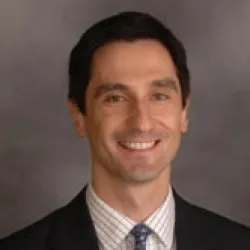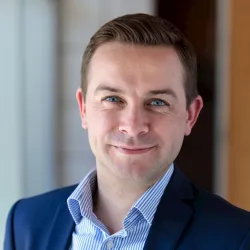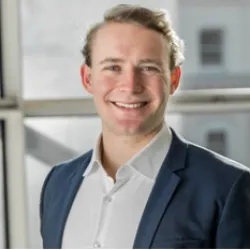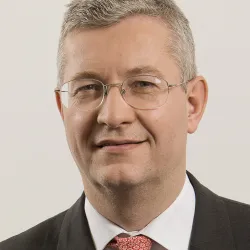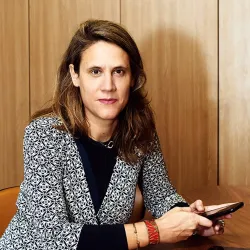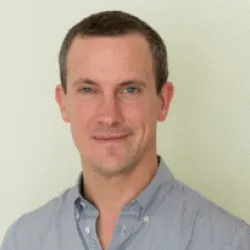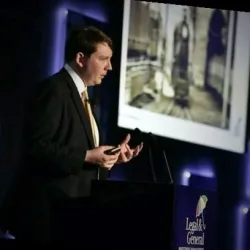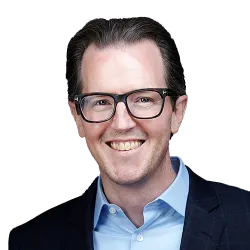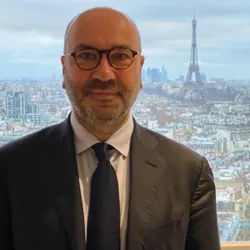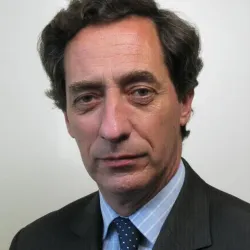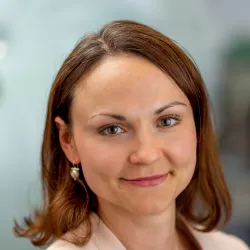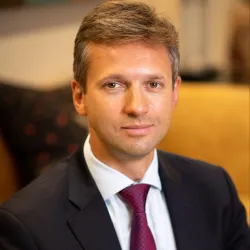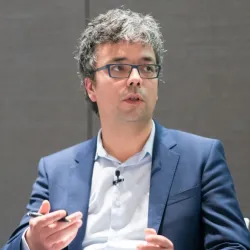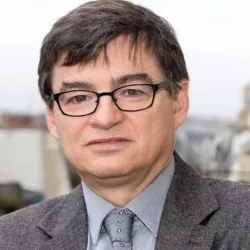Previous agenda
Agenda
Previous agenda
10:55 – 11:00
Welcome to Risk Live 2021
10:55 - 11:00
Duncan Wood is the London-based editor-in-chief of Risk.net. He was promoted to the role at the start of 2015, to lead the editorial reorganisation of the website and its print titles. Wood had been editor of Risk magazine since July 2011. He rejoined Risk as European editor in October 2009, having originally worked for Risk and Asia Risk in London and Hong Kong as a writer and researcher between 1998 and 2000.
In the intervening years, Wood was news editor for the Oliver Wyman-founded online start-up ERisk.com. He also worked freelance for six years while living in Germany, with his work featuring in Euromoney, Financial News, IFR, and The Wall Street Journal, as well as Risk magazine and its sister titles. Wood has written about derivatives and risk throughout his 17-year career in journalism. He is a Neal Awards finalist, and has won Incisive Media's journalist and editor of the year awards.
11:00 – 11:30
Interest rates – the next generation
11:00 - 11:30
- Leaping beyond 2022 and 2023, what will the interest rate market look like post-Libor reform?
- A mutli-rate environment?
- How much difference will there be between the different products?
- How would a portfolio look in a multi-rate world?
Andrew Morton is Global Co-Head of Markets at Citi. He has been with Citi since 2008, and was previously head of the G10 Rates, Markets Treasury and Finance businesses and was responsible for the Markets Quantitative Analysis (MQA) function.
Prior to joining Citi, he spent fifteen years at Lehman Brothers during which he held several positions including Head of European Fixed Income and Global Head of Fixed Income.
Andrew began his working career as an academic in mathematical finance. He is the co-author of the HJM interest rate model, a widely used framework for the valuation of interest rate derivatives. He earned a B. Math from University of Waterloo and a Ph.D. in Engineering from Cornell University.
12:00 – 12:30
Post-Libor rates market
11:00 - 12:00
- What does the future hold for rates markets?
- New flexibility of the market
- Standardization
- Conventions
Charles Bristow
Managing Director and Global Head of Rates, FI Financing, CPT & Market Resources Optimisation
JP Morgan
Charles Bristow is a Managing Director in the Corporate & Investment Bank (CIB) at JP Morgan based in London. Charles is global head of Rates, Fixed Income Financing and the Credit Portfolio Trading business and has responsibility for the capital and funding strategy across the broader Markets businesses. Charles is a member of the European Management Committee and is co-chair of the EMEA Diversity Council.
Charles joined the firm in 1998 as an intern before returning upon graduation and worked in a number of derivatives trading roles across Swaps and Options. He became head of non-linear rates products and then head of rates trading in the region before taking a global management role in 2015.
Charles has been involved in a number of strategic projects for the fixed income trading businesses including the design and implementation of differential discounting, measures to reduce the GSIB footprint of the business including the formation of a dedicated compression team and derivatives FVA build out. He is a member of the CIB and EMEA capital committees.
Recent projects outside of Rates trading include Libor transition, buildout of the trader mandate framework and the formation of a collateral management and optimization front office function. Additionally, through his role on the diversity council, Charles is driving the advancement of black leadership and our gender diversity projects in the EMEA region.
Charles studied Manufacturing Engineering at Pembroke College, Cambridge where he was a college scholar and achieved a Masters degree. He is married with three children.
Daniel Leon
Global head of trading, treasury management and global solutions
HSBC Global Asset Management
13:00 – 14:00
Break
13:00 - 13:55
Meet with your industry peers, our exclusive sponsors and explore the comprehensive media hub
14:00 – 14:30
Economic outlook: sovereign debt in the wake of the pandemic
14:00 - 14:30
- What is the long-term cost of government lending and support during the pandemic?
- What are the warning signs for investors?
Richard Berner
Clinical professor of finance, co-director, the Volatility and Risk Institute
NYU Stern School of Business
Professor Berner served as the first director of the Office of Financial Research (OFR) from 2013 until 2017. The Dodd-Frank Wall Street Reform and Consumer Protection Act of 2010 established the OFR to support the Financial Stability Oversight Council, the Council’s member organizations and the public. The OFR’s mission is to promote financial stability by delivering high-quality financial data, standards and analysis.
He was counselor to the Secretary of the Treasury from April 2011 to 2013. His principal responsibilities included advising the Secretary on financial and regulatory issues and starting up the Office of Financial Research.
Professor Berner was a managing director, chief US economist at Morgan Stanley from 1999 to 2011 and co-head of Global Economics from 2008 to 2011.
He was executive vice president and chief economist at Mellon Bank, and a member of Mellon's Senior Management Committee (1992-99). Previously, he served as a principal and senior economist for Morgan Stanley, as a director and senior economist for Salomon Brothers (1985-91), as economist for Morgan Guaranty Trust Company (1982-85) and as director of the Washington, DC, office of Wharton Econometrics (1980-82).
Professor Berner served on the research staff of the Federal Reserve in Washington, where he co-directed the Fed’s model-based forecast and was a member of the team that developed the Fed’s first multi-country model used for international policy analysis (1972-80). He has been an adjunct professor of economics at Carnegie-Mellon University and at George Washington University.
He is an advisor to FinRegLab, an innovation center that tests new technologies and data to inform public policy and promote a responsible and inclusive financial marketplace. He is a member of the Milken Fintech initiative, led by former OCC head Tom Curry and former Treasury official Melissa Koide. He is a senior advisor to MacroPolicy Perspectives, an economic consulting firm. He is a member of the Board of Advisors of HData, which helps data companies involved in RegTech and Legal Tech solutions. He is a member of the IMF panel of experts for financial stability.
Professor Berner has been a member of the Economic Advisory Panel of the Federal Reserve Bank of New York, a member of the Panel of Economic Advisers of the Congressional Budget Office, a member of the Executive Committee of the Board of Directors of the National Bureau of Economic Research, a member of the Advisory Committee of the Bureau of Economic Analysis, Department of Commerce, a member of the Board of Directors of the Penn Institute for Economic Research and a member of the Board of Advisors of Macroeconomic Advisers, LLC. He served as an associate for the Counterparty Risk Management Policy Group II. He is a Past President and Fellow of the National Association for Business Economics and is the past chair of the Economic Advisory Panel of the Bond Market Association. He is the winner of forecasting awards from Market News and the National Association for Business Economics, the 2007 recipient of the William Butler Award for Excellence in Business Economics and has been a member of Time’s Board of Economists.
He received his bachelor’s degree magna cum laude in Economics from Harvard College in 1968, and his PhD in Economics from the University of Pennsylvania in 1976. He researched his dissertation under the supervision of Professor Lawrence Klein, and was funded by SSRC-Ford Foundation grants at both the University of Louvain, Belgium, and at the University of Bologna, Italy, from 1971-72.
14:30 – 15:00
Prudential rules and their suitability of government debt issue and highly accommodative monetary policy
14:30 - 15:00
Thomas Hoenig is a Distinguished Senior Fellow at the Mercatus Center at George Mason University. His research focuses on the long-term impact of the politicization of financial services as well as the effects of government granted privileges and market performance.
Prior to joining the Mercatus Center, Mr. Hoenig served as Vice Chairman of the Federal Deposit Insurance Corporation from 2012 until 2018. In that capacity, he oversaw FDIC operations and policy related to deposit insurance pricing, bank supervision, and financial stability and bank resolution. He served as Chair of the FDIC’s Bank Appeals and Audit Committees, and served as Director of NeighborWorks America, which was established by Congress in 1978 to address housing issues nationwide. He also served as a member of the International Association of Deposit Insurers’ board from 2012 to 2017, and as the President and Chairman from October 2015 to October 2017.
Previously, Mr. Hoenig was President and Chief Executive Officer of the Federal Reserve Bank of Kansas City and a member of the Federal Reserve System's Federal Open Market Committee from 1991 to 2011. Mr. Hoenig was with the Federal Reserve for 38 years, beginning as an economist and then as a senior officer in banking supervision. As President and Chief Executive Officer, he led the Federal Reserve Bank of Kansas City during the Great Recession and the banking crisis of 2008 and 2009.
During his time with the Federal Reserve, Mr. Hoenig chaired several key committees including the Conference of Presidents, the Committee on Bank Supervision, Regulation and Legislation, and the Information Technology Oversight Committee. Also, during his tenure, Mr. Hoenig organized and hosted the Federal Reserve Bank of Kansas City’s Jackson Hole economic symposium for global central bankers.
Mr. Hoenig is from Fort Madison, Iowa and received a doctorate in economics from Iowa State University.
15:00 – 15:30
The impact of increasing sovereign debt on risk from financial sustainability perspective
15:00 - 15:30
Born in 1962, Denis joined Banque de France in 1986 after graduating from l’Institut d’Etudes Politiques de Paris. He subsequently received a Master degree in Business Administration from INSEAD. His career path at the Banque de France led him to hold management positions in the Financial Markets, Payments and Market Infrastructures and Economics and International Relations departments. He was seconded to the New York Fed (1997-1998) and served at the Bank for International Settlements as secretary of the G10 Committee on Payment and Settlement Systems (2007-2008). He was then appointed Director General of Financial Stability and Operations and a member of the Executive Committee of Banque de France. In this capacity he was a member of European and international committees dealing with monetary policy and financial stability issues and prudential regulation of banks (Euro Retail Payments Board, Committee on the Global Financial System, Basel Committee on Banking Supervision – co-chair of the Macroprudential Supervision Committee).
Denis Beau is a Chevalier of the French Legion of Honour.
15:30 – 16:30
Prudential regulation
15:30 - 16:30
- Prudential rules and their suitability in an era of government debt issuance
- Is the post crisis system fit for purpose in this new environment?
Born in 1962, Denis joined Banque de France in 1986 after graduating from l’Institut d’Etudes Politiques de Paris. He subsequently received a Master degree in Business Administration from INSEAD. His career path at the Banque de France led him to hold management positions in the Financial Markets, Payments and Market Infrastructures and Economics and International Relations departments. He was seconded to the New York Fed (1997-1998) and served at the Bank for International Settlements as secretary of the G10 Committee on Payment and Settlement Systems (2007-2008). He was then appointed Director General of Financial Stability and Operations and a member of the Executive Committee of Banque de France. In this capacity he was a member of European and international committees dealing with monetary policy and financial stability issues and prudential regulation of banks (Euro Retail Payments Board, Committee on the Global Financial System, Basel Committee on Banking Supervision – co-chair of the Macroprudential Supervision Committee).
Denis Beau is a Chevalier of the French Legion of Honour.
Thomas Hoenig is a Distinguished Senior Fellow at the Mercatus Center at George Mason University. His research focuses on the long-term impact of the politicization of financial services as well as the effects of government granted privileges and market performance.
Prior to joining the Mercatus Center, Mr. Hoenig served as Vice Chairman of the Federal Deposit Insurance Corporation from 2012 until 2018. In that capacity, he oversaw FDIC operations and policy related to deposit insurance pricing, bank supervision, and financial stability and bank resolution. He served as Chair of the FDIC’s Bank Appeals and Audit Committees, and served as Director of NeighborWorks America, which was established by Congress in 1978 to address housing issues nationwide. He also served as a member of the International Association of Deposit Insurers’ board from 2012 to 2017, and as the President and Chairman from October 2015 to October 2017.
Previously, Mr. Hoenig was President and Chief Executive Officer of the Federal Reserve Bank of Kansas City and a member of the Federal Reserve System's Federal Open Market Committee from 1991 to 2011. Mr. Hoenig was with the Federal Reserve for 38 years, beginning as an economist and then as a senior officer in banking supervision. As President and Chief Executive Officer, he led the Federal Reserve Bank of Kansas City during the Great Recession and the banking crisis of 2008 and 2009.
During his time with the Federal Reserve, Mr. Hoenig chaired several key committees including the Conference of Presidents, the Committee on Bank Supervision, Regulation and Legislation, and the Information Technology Oversight Committee. Also, during his tenure, Mr. Hoenig organized and hosted the Federal Reserve Bank of Kansas City’s Jackson Hole economic symposium for global central bankers.
Mr. Hoenig is from Fort Madison, Iowa and received a doctorate in economics from Iowa State University.
Philip Alexander is the risk management and regulation editor for Risk.net, overseeing a team of journalists in the UK, US and Asia. He was previously senior editor at The Banker magazine, covering financial regulation, capital markets, derivatives, and central and eastern Europe.
Prior to entering journalism, Philip edited sovereign credit research for rating agency Standard & Poor’s in London. He was awarded a PhD in modern history by the University of Cambridge for a thesis on Britain and European integration.
16:30 – 17:30
Risk Live escape rooms - Lost in the lab
16:30 - 17:30
Join us to meet your industry peers in our virtual escape room experience, hosted over Zoom. Following a medical theme, you do not need to prepare anything in advance and the game format is explained in more detail here - but we're not giving too much away!
Register your interest here - https://www.risklive.net/escape-room-2021
10:50 – 11:00
Chair's opening remarks day two 2021
09:50 - 10:00
Lee Braine, from the Chief Technology Office at Barclays, has a deep interest in technology innovation. His is responsible for an Innovation and Engineering function, leads the bank’s technology architecture for distributed ledgers, and leads the bank’s engagement in quantum computing. He represents Barclays on several industry consortia and is the author of technology research papers. His background is in investment banking, clearing and settlement, stock exchanges, corporate banking, payments, and wealth management. He has a BSc and PhD in Computer Science from University College London.
11:00 – 11:30
Towards quantum advantage in the financial service sector
11:00 - 11:30
Live demo presentation
Dr. Stefan Woerner is the Quantum Applications Research & Software Lead at IBM Quantum and a Principal Research Staff Member in the Quantum Technologies group at IBM Research - Zurich. The focus of his research is the development and analysis of quantum algorithms for optimization, simulation, and machine learning as well as their practical applications, for instance in finance or supply chain management.
11:30 – 12:00
Quantum computation for risk sensitivity analysis
11:30 - 12:00
Live demo presentation
Rory McLaren is Technology Strategist in the CTO Office at Deutsche Börse Group, based in London and working digitally everywhere. He is responsible for technology innovation including executing lighthouse projects in new technology and leads the Quantum Initiative within Deutsche Börse. Rory has 25+ years of experience in Financial Services Technology ranging from start-ups and accelerators to leading financial infrastructure providers and holds a bachelor’s degree in Computer Science from the University of Glasgow, UK.
12:30 – 13:00
Applying quantum technology to the Federal Reserve’s Comprehensive Capital Analysis and Review (CCAR); and the Dodd-Frank Act Stress Tests (DFAST)
12:30 - 13:00
Live demo presentation
Christopher Savoie is a published scholar in medicine, biochemistry, and computer science, and his research and business interests over the years have focused on the intersection of machine learning, biology, and chemistry. Christopher is the original inventor of AAOSA, the A.I.-based natural language interface technology used to develop Apple’s Siri. He has led big data analytics efforts at Nissan and has previously founded and served as CEO of technology companies that have been acquired or exited via IPO. He currently sits on the board of the US Quantum Economic Development Consortium (QED-C). Christopher is also a licensed attorney and has served as the Vice-Chairman of the Big Data Committee of the American Bar Association. He is a published legal expert on liability issues surrounding Artificial Intelligence, Big Data, Information Security and Data Privacy. He has also lectured and taught continuing legal education courses on these subjects.
13:00 – 14:00
Quantum computing
13:00 - 14:00
- What are the near-term use cases of quantum computing for financial firms?
- When should you prepare to invest in quantum computing?
- What does a quantum-ready organization look like?
Lee Braine, from the Chief Technology Office at Barclays, has a deep interest in technology innovation. His is responsible for an Innovation and Engineering function, leads the bank’s technology architecture for distributed ledgers, and leads the bank’s engagement in quantum computing. He represents Barclays on several industry consortia and is the author of technology research papers. His background is in investment banking, clearing and settlement, stock exchanges, corporate banking, payments, and wealth management. He has a BSc and PhD in Computer Science from University College London.
Rory McLaren is Technology Strategist in the CTO Office at Deutsche Börse Group, based in London and working digitally everywhere. He is responsible for technology innovation including executing lighthouse projects in new technology and leads the Quantum Initiative within Deutsche Börse. Rory has 25+ years of experience in Financial Services Technology ranging from start-ups and accelerators to leading financial infrastructure providers and holds a bachelor’s degree in Computer Science from the University of Glasgow, UK.
Dr. Stefan Woerner is the Quantum Applications Research & Software Lead at IBM Quantum and a Principal Research Staff Member in the Quantum Technologies group at IBM Research - Zurich. The focus of his research is the development and analysis of quantum algorithms for optimization, simulation, and machine learning as well as their practical applications, for instance in finance or supply chain management.
Christopher Savoie is a published scholar in medicine, biochemistry, and computer science, and his research and business interests over the years have focused on the intersection of machine learning, biology, and chemistry. Christopher is the original inventor of AAOSA, the A.I.-based natural language interface technology used to develop Apple’s Siri. He has led big data analytics efforts at Nissan and has previously founded and served as CEO of technology companies that have been acquired or exited via IPO. He currently sits on the board of the US Quantum Economic Development Consortium (QED-C). Christopher is also a licensed attorney and has served as the Vice-Chairman of the Big Data Committee of the American Bar Association. He is a published legal expert on liability issues surrounding Artificial Intelligence, Big Data, Information Security and Data Privacy. He has also lectured and taught continuing legal education courses on these subjects.
13:45 – 14:00
Break
13:45 - 14:00
Meet with your industry peers, our exclusive sponsors and explore the comprehensive media hub
14:00 – 15:00
The future of digital assets - the coin debate
14:00 - 15:00
- State of play of tokenised cash settlement
- Benefits/drawbacks of: USC/JPM Coin/central bank digital currencies
- Will CBDCs eventually take over?
Valérie FASQUELLE is Director of the Infrastructures, Innovation and Payments directorate at Banque de France.
The Infrastructures, Innovation and Payments directorate is firstly in charge of the oversight of the safety of payment instruments and of the smooth operation of market infrastructures operating in France (payment systems, central securities depositories, securities settlement systems, central counterparties). The directorate is also responsible for the production of analyses and surveys on innovation in the field of payments and market infrastructures. Since early 2020, Valérie FASQUELLE is leading the Banque de France programme for experiments on Central Bank Digital Currency.
Through the various positions that she held, Valérie FASQUELLE was deeply involved between 2004 and 2015 in the management of Eurosystem large-scale projects such as Target 2 (European RTGS) and Target2 securities (European platform for securities settlement). She had previously the opportunity to work during 8 years in the field of payment systems and completed her business expertise through the various managerial responsibilities she held especially within the Banque de France IT Department.
Before joining the Banque de France in 1993, Mrs FASQUELLE graduated from the Institut d’Études Politiques de Paris and with a post-graduate degree in Economics from the Dauphine University in Paris.
Henry Holden is an Adviser at the BIS Innovation Hub. He joined the BIS in 2017 and is on secondment from the Bank of England where he worked on payment and clearing systems. His current responsibilities include work on central bank digital currencies, cyber risk and foreign exchange.
Lukas Becker is the derivatives desk editor for Risk.net. His topics of interest include over-the-counter derivatives pricing, collateral management, market infrastructure and legal risk. He is based in London. He was previously the Europe, Middle East and Africa editor of Risk magazine.
16:00 – 16:45
Market making in crypto currency
15:00 - 16:00
- Market making challenges
- Trading and liquidity
- Security and transparency
- Infrastructure and institutional barriers
As Head of Strategy, Justin Schmidt is responsible for developing, executing, and sustaining the firm's strategic initiatives and managing business operations. Mr. Schmidt comes to Talos with a 15-year track record in financial services, most recently serving as Head of Digital Asset Markets at Goldman Sachs. Mr. Schmidt is a graduate of MIT with degrees in computer science, focusing on artificial intelligence and decentralized applications engineering.
Maxime is the founder of B2C2, an electronic market making firm with a large footprint in the digital currency market. Previously, he worked as a trader in Fixed Income, Currencies and Commodities at Goldman Sachs in London. His areas of expertise include funding constraints, balance sheet pricing and multi-currency asset-liability management.
Maxime holds a BSc from the University of Louvain and an MSc from the University of Oxford.
17:00 – 17:45
How can we reassess and use model risk management to inform better risk decisions?
Risk LIVE – the boardroom
17:00 - 17:45
Financial institutions continue to face challenges in measuring and quantifying risk to facilitate decisions. Popular methods that are fundamental to measuring risk, such as frequency severity models and historical data, have their limitations. How can we reassess the use of these methods to apply and inform better risk decisions?
In this roundtable our experts will delve into the complexity of these tools and understand their limitations. Gain exclusive insights and practical tools to:
- Review and asses the limitations of frequency severity models and reliance on historical data
- How to use better analytics to inform risk decisions and measure potential loss
- Understand how the entire risk system reacts to stress and how to analyze the system
Join the brightest minds to discuss and strategise the future of risk management and risk transfer in an off-the-record briefing held over Zoom.
Chris is a member of Milliman’s Cyber Risk Solutions (CRS) practice group. The practice delivers a portfolio of risk consulting services, such as enterprise risk design, cyber risk assessment and quantification, test and build projects, operational risk assessments, enterprise risk management (ERM) education and training, and ERM technology evaluation. The CRS practice uses diagnostic consulting strategies to understand an organization’s enterprise risk goals and challenges and then customize solutions to deliver required business results.
EXPERIENCE
Chris has 15 years of professional experience. His experience includes work in the banking, insurance, capital markets and card sectors helping clients assess and mitigate risk.
Prior to joining Milliman, Chris was a Senior Manager in Accenture’s Finance and Risk Management Consulting practice, delivering work for global financial service clients. Additionally, Chris served as an active duty Naval Officer and has multiple overseas deployments.
Professional experience and subject matter advisory includes:
- Cyber Security metrics and governance
- Financial Service Regulatory and Compliance initiatives
- Risk Management
- Corporate and Risk Governance
- Surveillance
- Financial Services operating model and cost reduction
- Regulatory remediation and responses
- Legal department risk and optimization
- Leading large cross functional projects and teams
EDUCATION
- BS Political Science, University of Wisconsin–Madison
- MBA, University of Chicago – Booth School of Business
Evan's background is in the measurement and quantification of credit risk and operational risk. His primary focus is currently on supporting institutions in building operational risk modeling for stress testing, developing their risk identification process and developing their model risk management frameworks.
Some of his recent client engagements include:
For a foreign global bank, helped them develop a comprehensive operational risk framework for their US based IHC. Ensured both integration of the framework in their international framework as well as US regulatory compliance.
For a large internationally active US bank: supported major change of course in CCAR operational risk stress estimates a few months prior to submission in reaction to regulatory guidance.
For a large regional bank: built their CCAR loss projection model and wrote the documentation for the full CCAR operational risk submission.
For a global bank conducted a validation of their operational risk modeling framework for CCAR
Prior to joining Oliver Wyman, Evan was the Head of Risk Consulting for Financial Institutions for Aon in Columbia, Maryland. He was in charge of building Aon's risk consulting practice for financial institutions and managed multiple teams based in North America and Europe to deliver services to clients worldwide. Previously, Evan was an Assistant Vice President of the Federal Reserve Bank of Richmond, where he created the center of excellence for operational risk which served the System needs for operational risk related matters. The team was in charge of the supervision of all AMA and CCAR banks in the US and developed the Fed's CCAR model for operational risk.
Evan earned a B.A. and M.A. in Economics from the Université Catholique de Louvain in Belgium. He received an additional M.A. as well as his Ph.D. in Economics from the University of California at Los Angeles.
Piu Banerjee is the Head of Model Risk Management at CLS. Having established CLS’s model risk
management framework, she is responsible for its ongoing oversight, ensuring standards and governance
are applied consistently over the life cycle of models, including model development, implementation and
use, validation, monitoring and reporting.
Before joining CLS, Piu spent over nine years at the Federal Reserve, where she held several leadership
roles, including leading the Risk Analytics and Model Risk Management teams. She also lead and
supported Federal Reserve supervisory initiatives in numerous capacities. These included developing and
implementing supervisory models for stress testing, overseeing model risk management practices and
implementing capital rules (Basel, Stress Testing / CCAR) and loan loss provisioning (CECL) at financial
institutions in the US.
Piu graduated with PhD in Economics Rutgers University, New Brunswick, with a focus on applied
econometrics in banking and finance. She began her career in consulting, where she spent over five years
focusing on market competition analytics to support M&A regulatory due-diligence processes.
12:55 – 13:00
2021 - Day 3 - Chair’s welcome
12:55 - 13:00
Rob Mannix is the desk editor for investment, covering systematic investment strategies from quant funds to factor investing. He was previously responsible for Risk.net’s insurance coverage.
Based in the London office, Rob is interested in developments in the use of new types of data, the application of machine learning in investment, and research into systematic sources of return in markets.
Rob joined Infopro Digital (then Incisive Media) in 2008, having previously worked at Euromoney Institutional Investor, covering legal and regulatory issues affecting capital markets.
13:00 – 13:30
Social networks and markets
13:00 - 13:30
14:00 – 14:30
The inelastic markets hypothesis
14:00 - 14:30
Xavier Gabaix is Pershing Square Professor of Economics and Finance at Harvard’s economics department. He received his undergraduate degree in mathematics from the Ecole Normale Supérieure (Paris) and obtained his PhD in economics from Harvard University. His research focuses on finance, macroeconomics, and behavioral economics. He received the Fischer Black prize given every two years to the best financial economist under 40, the Bernacer prize given to the best European economist under 40 working in macroeconomics and finance, and the Lagrange and Allais Prizes. His research has been published in the American Economic Review, Econometrica, the Quarterly Journal of Economics, the Journal of Finance, and Nature. He is a Research Associate of the National Bureau of Economic Research and of the Center for Economic Policy Research.
Ralph S.J. Koijen is the AQR Capital Management Professor of Finance at the University of Chicago Booth School of Business. He is also a Research Associate at the National Bureau of Economic Research and a Research Fellow of the Center for Economic Policy Research. He is a co-director of the NBER Asset Pricing program. He serves as a co-editor of the Review of Financial Studies. Professor Koijen was awarded the 2019 Fischer Black Prize by the American Finance Association, given biennially to the top financial economics scholar under the age of 40.
Professor Koijen’s research focuses on finance, insurance, and macroeconomics. His research has been published in the American Economic Review, Econometrica, the Journal of Political Economy, the Quarterly Journal of Economics, the Journal of Finance, the Review of Financial Studies, and the Journal of Financial Economics. His research has been covered in popular media, such as the Financial Times, the Wall Street Journal, and The Economist.
Before joining Chicago Booth in 2018, Professor Koijen was a Professor of Finance at the London Business School and NYU Stern, and an Assistant and Associate Professor of Finance at Chicago Booth. He received his undergraduate degree in Econometrics from Tilburg University and his Ph.D. in Finance from Tilburg University.
15:00 – 15:45
Meme stock signals and demand driven asset prices
15:00 - 15:45
In 2021, GameStop has shown the importance of tracking and understanding flows in equity markets, including the retail bid. How can we make sense of what happened and what does it mean for the future of markets and volatility?
- Are flows moving prices more than before, if so – why?
- How easily can quant investors turn flow data into tradable signals?
- Challenging conventional market theory
Xavier Gabaix is Pershing Square Professor of Economics and Finance at Harvard’s economics department. He received his undergraduate degree in mathematics from the Ecole Normale Supérieure (Paris) and obtained his PhD in economics from Harvard University. His research focuses on finance, macroeconomics, and behavioral economics. He received the Fischer Black prize given every two years to the best financial economist under 40, the Bernacer prize given to the best European economist under 40 working in macroeconomics and finance, and the Lagrange and Allais Prizes. His research has been published in the American Economic Review, Econometrica, the Quarterly Journal of Economics, the Journal of Finance, and Nature. He is a Research Associate of the National Bureau of Economic Research and of the Center for Economic Policy Research.
Rob Mannix is the desk editor for investment, covering systematic investment strategies from quant funds to factor investing. He was previously responsible for Risk.net’s insurance coverage.
Based in the London office, Rob is interested in developments in the use of new types of data, the application of machine learning in investment, and research into systematic sources of return in markets.
Rob joined Infopro Digital (then Incisive Media) in 2008, having previously worked at Euromoney Institutional Investor, covering legal and regulatory issues affecting capital markets.
Michael has been a student of markets and market structure, for nearly 30 years. His proprietary research into the shift from actively managed portfolios and investment funds to systematic passive investment strategies has been presented to the Federal Reserve, the BIS, the IMF and numerous other industry groups and associations.
Michael joined Simplify in April 2021 after serving as Chief Strategist and Portfolio Manager for Logica Capital Advisers, LLC. Prior to Logica, Michael managed macro strategies at Thiel Macro, LLC, an investment firm that manages the personal capital of Peter Thiel. Prior to Thiel, Michael founded Ice Farm Capital, a discretionary global macro hedge fund seeded by Soros Fund Management. From 2006-2014, Michael founded and managed the New York office of Canyon Capital Advisors, a $23B multi-strategy hedge fund based in Los Angeles, CA, where he established their global macro strategies, managing in excess of $5B of exposure across equity, credit, FX, commodity and derivative markets.
In addition to his work as a market theorist and portfolio manager, Michael has been noted for his work as a public speaker and financial media participant. He is a graduate of the Wharton School at the University of Pennsylvania and a CFA holder.
16:30 – 17:15
Hall of Horrors – Managing the risk of controversies in your portfolio
16:30 - 17:15
Wirecard, Luckin Coffee, Nikola, Solutions 30. Controversies can damage your portfolio
This interactive think thank will review controversies from the following angles:
- The risk manager: what red flags, what monitoring, what actions can you take to force a controversy out of a portfolio
- The activist short-seller, publicizing controversies: what is the research process and what is their modus operandi once a publicly damning report is out?
- The fund of fund investor - finding controversies in the invested funds
- The legal risk of controversies
Julien Jarmoszko is an asset management consultant helping clients improve portfolio management processes and embrace digitalisation.
He started his career as a fund manager for Société Générale Asset Management and Credit Suisse then moving to the front office, helping ABG Sundal Collier and Fisher Investments Europe expand on the French market. He subsequently led the EMEA product management unit for S&P Global Market Intelligence before embracing leading technology with Fintech Move Digital AG and as advisor for a Fintech accelerator.
Julien is a graduate from Edhec Business School in France and a CFA charter holder. He currently lives in Zurich with his wife and two children. In his private time, he is a writer and gives back to the community as a volunteer fireman.
Pascal Traccucci is global head of risk at La Francaise Asset Management. He was previously responsible for enterprise risk management at Allianz Asset Management, hoPimco and Allianz Global Investors, and was global head of investment risk at Invesco. After starting his career at JP Morgan's capital markets research team, he held various positions in portfolio and product management with Invesco. He graduated in business and mathematics from Lyon and Frankfurt universities.
Sophie Vermeille
Partner - restructuring, corporate governance, M&A and shareholder activism
Vermeille & Co
Sophie Vermeille currently practices corporate, securities and restructuring law in Paris and has worked in the past for several international law firms (such as Clifford Chance, Weil Gotshal & Manges, Freshfields and DLA Piper). Ms. Vermeille has an in-depth knowledge of US securities law, Chapter 11 and Delaware corporate law, as well as of English law. This enables her to understand the legal culture of her foreign clients and to explain them how French law differs from their own legal systems.
Ms. Vermeille has worked in the past with the French government and has a thorough understanding as to how it may jeopardize or interfere with private transactions. Ms. Vermeille was, for instance, able to predict the outcome of recent transactions such as the LVMH/Tiffany deal or the Couche Tard/Carrefour deal.
Ms. Vermeille advises investors, shareholder advocacy groups, short selling activists and minority shareholders on matters such as:
- distressed investment and restructuring procedures, whether her clients run loan-to-own strategies, seek to acquire distressed assets or work out existing positions in leveraged finance and high-yield assets;
- corporate governance, proxy contests, tender offers, squeeze-outs, PtoP, etc.;
- strategic aspects and applicable regulations to short selling activism, for which she has a unique experience in France (as she is the main counsel of one of the most famous short seller activists in the world); and
- strategic aspects andapplicable regulations tolong activism, as she has worked for numerous activist hedge funds in the past (in particular on the Veolia-Suez case for which she has been mandated to build a comprehensive legal strategy for her clients).
Ms. Vermeille has significant expertise in the retail sector, as a result of her involvement in the high-profile Casino case for which she was closely followed by the French and English press.
Ms. Vermeille is a researcher and guest lecturer in Law and Finance at Panthéon-Sorbonne, HEC and Oxford University.
She is also a regular speaker at bankruptcy conferences organized by industry groups (INSOL International, INSOL EUROPE TMA…) or regulators (IMF, World Bank, European Commission, AMF (the French Market Authority), ACPR (the French banking supervisor)).
Ms. Vermeille is a graduate of the University of Panthéon-Assas University, where she received her law degree in business law (Magistère Juriste d'Affaires, Diplôme de juriste conseil d'entreprise), and of King's College London from which she holds an LL.M. in business law.
Matthew Earl is the Managing Partner of ShadowFall and the Fund Manager of the ShadowFall Fund. Matthew founded ShadowFall in 2017 to capitalise on the opportunity to generate short alpha in European markets. Matthew has over 15 years’ experience working in the financial services sector. He began his career as an economist at the Royal Bank of Scotland Plc before moving into equity research at a number of sell side firms including Investec, Charles Stanley Securities and Matrix. Between 2011-2016, Matthew managed capital for an UHNW with a short focus. During this period he highlighted his short theses on his widely followed investment blog, www.lordshipstrading.com which was frequently quoted by the financial press for its insights into flawed businesses and aggressive corporate accounting. Issuers he highlighted included Avanti, Globo, Tungsten, Rocket Internet, Dialight, Serco, Mitie, and Quindell among others. Matthew is also known for authoring the Zatarra Research reports in 2016, which exposed the fraud and money laundering at Wirecard AG. Since the launch of ShadowFall, Matthew has highlighted short theses on Issuers such as Blue Prism, boohoo, Burford Capital, Eurofins Scientific and IQE.
Matthew has a Master of Mathematics degree (University of St Andrews) and Post Graduate Certificate in Economics (Birkbeck, University of London).
09:50 – 10:00
2021 - Day 4 - Chair’s opening remarks
09:55 - 10:00
Will Hadfield runs the investing team for Risk.net, overseeing coverage of hedge funds, conventional asset managers and insurance companies. He previously covered market structure for Bloomberg News in London, both as a reporter and an editor. He studied history at the University of Durham and speaks French.
10:00 – 10:45
Keynote: Making net zero work - carbon pricing, ESG and COP26
10:00 - 10:30
Sir Dieter Helm is Professor of Economic Policy at the University of Oxford and Fellow in Economics at New College, Oxford. He was Independent Chair of the Natural Capital Committee, providing advice to the government on the sustainable use of natural capital, until the end of the second term of the Committee in November 2020. In the New Year 2021 Honours List, Dieter was awarded a knighthood for services to the environment, energy and utilities policy.
He has written many books, most recently Net Zero (September 2020, William Collins) in which he addresses the action we all need to take to tackle the climate emergency.
His other books include: Green & Prosperous Land (2019, William Collins), Burn Out: The Endgame for Fossil Fuels (2017), The Carbon Crunch: Revised and Updated (2015) and Natural Capital: Valuing the Planet (2016), all published by Yale University Press.
Dieter is Chairman of Natural Capital Research, developing natural capital models and assessments for the better use of land, and Honorary Vice President of the Berkshire, Buckinghamshire and Oxfordshire Wildlife Trust.
11:00 – 11:30
Fireside chat: Paris alignments metrics – developing a methodology in house
11:00 - 11:30
Interview with LGIM to discuss why they took the expensive, time-consuming approach of developing an in-house methodology to deliver the Paris Agreement.
- What edge does an asset manager get from developing an inhouse methodology?
- Why would a portfolio of Paris-compliant stocks outperform a portfolio of non-compliant stocks?
Nick joined in 2013 as a Fund Manager in LGIM’s Global Equity team, focused on energy and natural resources. Prior to joining LGIM he was an Investment Director for Developed Asia and Global Emerging Markets at Standard Life Investments. He previously worked for an emerging market focused hedge fund investing in equities, convertible bonds and distressed debt. He has also worked in a corporate advisory role and as a software developer. Nick has a law degree (LLB.) and a Master’s in jurisprudence (MJur.), focused on securities law, from the University of Durham.
Will Hadfield runs the investing team for Risk.net, overseeing coverage of hedge funds, conventional asset managers and insurance companies. He previously covered market structure for Bloomberg News in London, both as a reporter and an editor. He studied history at the University of Durham and speaks French.
12:00 – 13:00
Temperature checking portfolios – how are investors measuring their contributions?
12:00 - 12:45
Some of the world’s biggest investors have committed to publishing temperature ratings for their portfolios; there are many methodologies competing for their attention.
- What are science-based targets and why do portfolio companies need to set them?
- Why do some companies get different temperature ratings from different methodologies?
- Can we just fix everything with a global climate accounting standard?
Nick joined in 2013 as a Fund Manager in LGIM’s Global Equity team, focused on energy and natural resources. Prior to joining LGIM he was an Investment Director for Developed Asia and Global Emerging Markets at Standard Life Investments. He previously worked for an emerging market focused hedge fund investing in equities, convertible bonds and distressed debt. He has also worked in a corporate advisory role and as a software developer. Nick has a law degree (LLB.) and a Master’s in jurisprudence (MJur.), focused on securities law, from the University of Durham.
Dr Todd Arthur Bridges joins Arabesque S-Ray GmbH from State Street Global Advisors, where he was Head of ESG Research and Development. Dr Bridges previously worked as Head of ESG Research at Ethic, and held the position of Research Managing Director at Cornell University. He is a member of the Sustainable Finance Advisory Committee of the UN-backed Principles for Responsible Investment (PRI), and holds a PhD in Socioeconomics, Organizational Behaviour and Research Methods from Brown University.
Frédéric Samama is Chief Responsible Investment Officer at CPR AM, Amundi group
He is the founder of the SWF Research Initiative, co-edited a book on long-term investing alongside Nobel Prize Laureate Joseph Stiglitz and Professor Patrick Bolton, and has published numerous papers on green finance.
Formerly, he oversaw Corporate Equity Derivatives within Crédit Agricole Corporate Investment Banking in New York and Paris. During his tenure, he developed and implemented the first international leveraged employee share purchase programme, a system now widely used among French companies.
In recent years, he has focused on climate change with a mix of financial innovation, research and policymaking recommendations, advising central banks, sovereign wealth funds and policymakers.
Will Hadfield runs the investing team for Risk.net, overseeing coverage of hedge funds, conventional asset managers and insurance companies. He previously covered market structure for Bloomberg News in London, both as a reporter and an editor. He studied history at the University of Durham and speaks French.
13:00 – 14:00
Break
13:00 - 13:45
Meet with your industry peers, our exclusive sponsors and explore the comprehensive media hub
14:00 – 15:00
Long term asset allocation decisions under climate change scenarios
14:00 - 14:45
Pascal Traccucci is global head of risk at La Francaise Asset Management. He was previously responsible for enterprise risk management at Allianz Asset Management, hoPimco and Allianz Global Investors, and was global head of investment risk at Invesco. After starting his career at JP Morgan's capital markets research team, he held various positions in portfolio and product management with Invesco. He graduated in business and mathematics from Lyon and Frankfurt universities.
15:30 – 16:30
Hall of Horrors: the impacts of climate change on operational risk
15:30 - 16:15
Join the brightest minds to discuss and strategise the future of risk management in this off-the-record think tank session over Zoom. This session will address:
- How Op Risk losses have risen after economic shocks over the last 3 decades
- How Transition and Physical Risks lead to changes in asset values, market volatility and default
- Examples of the types of Op Risk losses that may ensue from Climate Change
Michael Grimwade is managing director, operational risk, at ICBC Standard Bank and has previously held senior op risk management roles at MUFG Securities, RBS and Lloyds. Prior to this, he held management consultant positions at PwC and Deloitte Consulting. Grimwade has been a director of the Institute of Operational Risk (IOR) and is currently the chair of the Association of Foreign Banks' Operational Risk Expert Panel. He has authored a number of articles on setting appetite for op risk; scenario analysis techniques; climate change; quantifying emerging risks; and modelling op risk capital. He received an award in 2014 from the IOR for his contribution to the profession. His second book, Ten laws of operational risk, was published in December 2021.
10:50 – 11:00
2021 - Day 5 - Chair’s opening remarks
10:45 - 11:00
Mauro Cesa is quantitative finance editor for Risk.net, based in London. He leads the team responsible for the publication of quantitative research across all brands of the division. The section of Risk.net he manages, Cutting Edge, publishes peer-reviewed papers on derivatives, asset and risk management, and commodities.
Mauro holds a degree in economics from the university of Trieste and a masters in quant finance from the University of Brescia.
11:00 – 11:45
Generator models
11:00 - 11:45
Dr Blanka Horvath is an associate professor in mathematical and computational finance at the University of Oxford. Blanka’s current research interests evolve around a new generation of option pricing models (Rough Stochastic Volatility models), and their asymptotic and numerical properties. Prior to her current appointment, she was at ETH Zurich, specialising in functional analytic and numerical properties of SABR-type stochastic models. Blanka holds a PhD in Mathematical Finance from ETH Zurich, a Diploma in Mathematics from the University of Bonn and an MSc in Economics from the University of Hong Kong.
12:00 – 12:45
From calibration to learning: a new paradigm for risk
12:00 - 12:45
For the past four decades, quantifying risk involved model selection and model calibration. Today we are on the verge of transition to a new paradigm where model selection and calibration are replaced by machine learning - a process by which a rigorous view of risk is constructed from all available data, without predefined notions of what stochastic processes or equations should be used to describe that data.
Sokol and Kondratyev will discuss:
- Why risk models that learn from the data are better than risk models that average and interpolate the data, especially during a period of stress
- Examples where calibration fails but machine learning succeeds
- How machine learning can eliminate cognitive biases that influence model selection and calibration
- Bayesian view of risk as degree of confidence based on all available data vs. frequentist view of risk based on historical occurrences of specific adverse events
- Building a consistent view of risk across multiple equities, credit names, currencies, or commodities where some names have lots of data and others have little, instead of a binary choice between single name and proxy based calibration.
While the presentation will rely on primarily on examples from market and credit risk, the concepts we will discuss are applicable to other areas of risk management, including operational and cyber risk.
Alexander Sokol is the founder, Executive Chairman, and Head of Quant Research at CompatibL, a trading and risk technology company. He is also the co-founder of Numerix, where he served as CTO from 1996 to 2003, and the co-founder of Duality Group, where he served as CTO from 2017 to 2020.
Alexander won the Quant of the Year Award in 2018 together with Leif Andersen and Michael Pykhtin, for their joint work revealing the true scale of the settlement gap risk that remains even in the presence of initial margin. Alexander’s other notable research contributions include systemic wrong-way risk (with Michael Pykhtin, Risk Magazine), joint measure models, and the local price of risk (with John Hull and Alan White, Risk Magazine), and mean reversion skew (Risk Books, 2014).
Alexander earned his BA from the Moscow Institute of Physics and Technology at the age of 18, and a PhD from the L. D. Landau Institute for Theoretical Physics at the age of 22. He was the winner of the USSR Academy of Sciences Medal for Best Student Research of the Year in 1988.
13:00 – 13:45
A technology-driven approach to Model Risk Management
13:00 - 13:45
- the Model Risk Management journey
- the impact of advanced analytic techniques, such as Machine Learning, on MRM
- technology as a driving force towards efficient and effective MRM
Yields.io co-founder and CEO, Jos Gheerardyn, built the first FinTech platform that uses AI for real-time model testing and validation on an enterprise-wide scale. As a zealous proponent of model risk governance & strategy, Jos is on a mission to empower quants, risk managers and model validators with smarter tools to turn model risk into a business driver.
Prior to his current role, he has been active in quantitative finance both as a manager and as an analyst. Over the past 15 years, he has been working with leading international investment banks as well as with award-winning start-up companies. He is the author of multiple patents applying quantitative risk management techniques to imbalance markets. Jos holds a PhD in superstring theory from the University of Leuven, Belgium.
14:00 – 15:00
Rough volatility models
14:00 - 14:45
Jim Gatheral is Presidential Professor of Mathematics at Baruch College, CUNY teaching mostly courses in the Masters of Financial Engineering (MFE) program. Prior to joining the faculty of Baruch College, Jim was involved in all of the major derivative product areas as bookrunner, risk manager, and quantitative analyst in London, Tokyo and New York, in a career in the financial industry that spanned over 27 years. Jim has served as a Managing Editor of the International Journal of Theoretical and Applied Finance and as Associate Editor of the SIAM Journal on Financial Mathematics; he currently serves as Joint Editor-in-Chief of Quantitative Finance with Michael Dempster. His current research focus is on volatility modeling and modeling equity market microstructure for algorithmic trading. Jim is also a frequent speaker at both practitioner and academic conferences around the world. His best-selling book, The Volatility Surface: A Practitioner's Guide (Wiley 2006) is one of the standard references on the subject of volatility modeling. He received his Ph.D. in theoretical physics from Cambridge University.
Mathieu Rosenbaum is a full professor at École Polytechnique, where he holds the chair “Analytics and Models for Regulation”
and is co-head of the quantitative finance (El Karoui) master program. His research mainly focuses on statistical finance problems, regulatory issues and risk management of derivatives.
He published more than 80 articles on these subjects and supervised about 20 PhD students.
He is notably a renowned experts on the quantitative analysis of market microstructure and high frequency trading.
Mathieu Rosenbaum is also at the origin (with Jim Gatheral and Thibault Jaisson) of the development of rough volatility models.
He is one of the editors in chief of the journal “Market Microstructure and Liquidity“ and is associate editor for 10 other journals.
Furthermore, he received the Europlace Award for Best Young Researcher in Finance in 2014, the European Research Council Grant in 2016, the Louis Bachelier prize in 2020 and the Quant of the Year award in 2021.
15:00 – 16:00
Keynote: Endogenous jumps and liquidity crises
15:00 - 15:45
Jean-Philippe Bouchaud, Chairman, Capital Fund Management (Risk.net's 2017 Quant of the Year & Buy-Side Quant of the Year 2018)
Jean-Philippe is Chairman and Chief Scientist. He supervises our research department with Marc and maintains strong links between our research team and the academic world. He is also a professor at Ecole Polytechnique where he teaches Statistical Mechanics and a course on "Complex Systems". He joined CFM in 1994.
Quant of the Year 2017 - https://www.risk.net/risk-magazine/analysis/2479713/quant-of-the-year-jean-philippe-bouchaud
Buy-Side quant of the Year 2018 - https://www.risk.net/awards/5364591/buy-side-quant-of-the-year-jean-philippe-bouchaud

